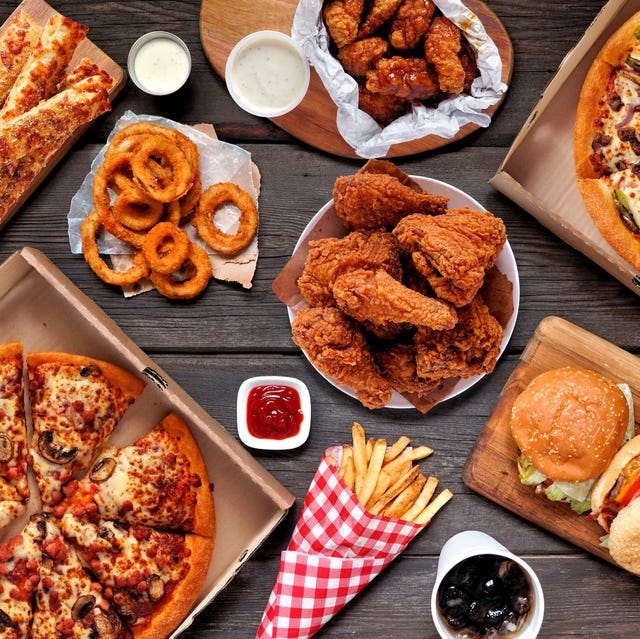7 Popular Foods That Could Be Harming Your Gut
They may taste delicious, but doctors and nutritionists agree you should avoid these foods and beverages if you want to keep your gut happy and healthy.

Everything you eat makes its way through your intestines, so it probably comes as no surprise that the food you consume can have a huge impact on the health of your gut. You see, your gut is filled with trillions of bacteria, viruses, fungi and other microbes that feed on the food you put in your body. If they’re fed well, that can be a boon for your overall health.
“The gut microbiome is crucial for overall well-being due to several functions like the development of the immune system, human metabolism and even cognitive function,” says Alma Simmons, RDN, LD, CDCES, a registered dietitian nutritionist at The Ohio State University Wexner Medical Center. “One of the most important functions of the microbiota is to protect the intestine against colonization by exogenous pathogens and potentially harmful microorganisms.”
Unfortunately, not every food is good for your gut and the microbes that live within it. “Gas, bloating, cramping, diarrhea and constipation are no fun,” says Anish A. Sheth, MD, practicing Penn Medicine physician, Chief of Gastroenterology at Princeton Medical Center, as well as co-director of PMC's Center for Digestive Health and its GERD Program director. “An unhealthy gut affects digestion, energy, our ability to work and socialize and even our mental health.”
To keep your digestive system running as smoothly as possible, Dr. Sheth recommends drinking plenty of water, exercising regularly, prioritizing sleep and asking your doctor if they recommend a fiber supplement (we have some recommendations here too). While you’re at it, try to limit the foods outlined below, as they can really put a wrench in the health of your gut.
Stefani (she/her) is a registered dietitian, a NASM-certified personal trainer and the director of the Good Housekeeping Institute Nutrition Lab, where she handles all nutrition-related content, testing and evaluation. She holds a bachelor’s degree in nutritional sciences from Pennsylvania State University and a master’s degree in clinical nutrition from NYU. She is also Good Housekeeping’s on-staff fitness and exercise expert. Stefani is dedicated to providing readers with evidence-based content to encourage informed food choices and healthy living. She is an avid CrossFitter and a passionate home cook who loves spending time with her big fit Greek family.


You Might Want to Skip This Fruit in Your Smoothie

15 Types of High-Protein Fish

The Best Eating Plans for Longevity

A List of the Healthiest Fruits You Can Eat















